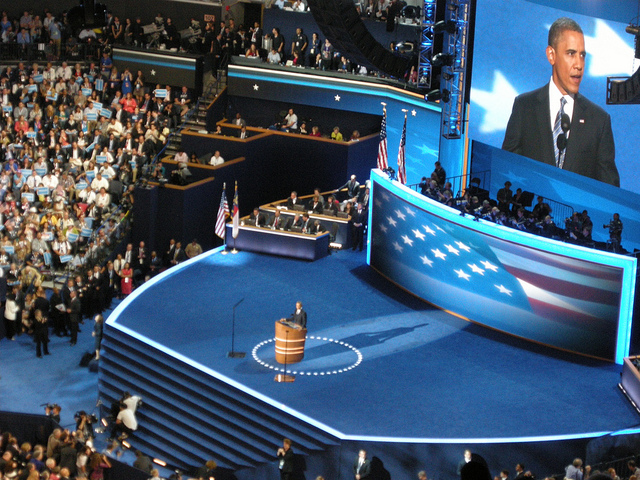There’s the missing plane, and then there’s the missing Ukraine. They seem related. The plane story appeared and the Ukraine story went into hiding (like the plane) almost simultaneously last weekend, as if the plane story provided a cue that the gatekeepers at the news media were seeking. Whoosh, they sprung a trap door on the earlier story, leaving only traces of it — though there was far less material, less to say about the plane, it just wasn’t there — while Ukraine had ongoing info, visuals, interviews, etc.
What motivated the replacement? Was it the usual suspects as described by media critics’ standard alerts, to which I generally subscribe: a preference for simple, non-controversial stories that don’t require critical analysis, side-taking or questions about what it all means? Ergo weather, traffic, crime, natural disasters, plane crashes. If it bleeds, it leads. As they say by way of justification: it’s what “people” care about.
But there’s a more generous explanation. Ukraine (which didn’t vaporize, it’s just hard to find) had too many echoes of the bad old days. The Cold War. East versus West, us against them, Putin as Stalin, Hitler or both. Appeasement, nukes lurking. Who wants to revisit all that? Get thee behind me, last century.
I thought of this while reading the novel, The Man who Loved Dogs, by Leonardo Padura. It’s built around Leon Trotsky’s assassination in Mexico City in 1940. But it’s also about the 20th century, especially the Soviet Union, RIP, 1917-1991: 74 years, the lifespan of a normal person. It asks how the most beautiful dream humanity ever dreamed, a world of peace and social harmony, became its most awful nightmare. It’s told partly from the POV of the idealistic young Spanish communist killer, sure he’s done History’s bidding yet haunted forever by his victim’s scream. But it’s also told from Trotsky’s side. He’s the visionary who led the revolution, then was pursued by its “gravedigger,” Stalin, across the globe. Yet even Trotsky is haunted by doubt about whether he mightn’t have erred, despite his utter certainty of reading History correctly.
It excavates a deep mystery of that befuddling century: why so many heroic revolutionaries, when charged by Stalin with treason as capitalist agents in the 1930s, confessed! It wasn’t just torture or blackmail; they believed History required the success of the Soviet cause, even at the cost of their lives and lies. This arrogant stupidity, masked as historical omniscience — a parody of blind religious faith — was typical of the era, on all sides. It led to hell. You can see why future generations, even subliminally, mightn’t want to go near it again.
It’s possible that Barack Obama is the perfect national leader to appear in the century after the century that knew too much. He’s cool, won’t commit to dreams and visions, except shallowly and rhetorically, as all leaders do. He knows more about those utopian dreams and their appeal than most public figures; he’s lived in the Third World and read widely. But he stays cool, doesn’t overinvest.
As the scholar-blogger David Bromwich says, he has preferences but not commitments or passions. So he “preferred” Canadian-style public health care but was happy to push through a flawed system that rewarded the insurance companies more than ever. His qualities were brilliantly on show in his Between Two Ferns gig with Zach Galifianakis. I thought it was bravura stuff and not easy for either to pull off, though you can decide for yourselves.
He’s no-drama Obama while 20th century politics was sheer drama, along with much else. Had this been last century he might have stayed on the streets of Chicago as an idealistic organizer. Instead he grabbed the gold ring and is now poised for the real prize: a Bill Clinton-style post-presidency jetting around with gobs of money and adulation, and none of the gaff you take in the White House.
That seemed to be the dilemma: you seize the dream and wind up writhing in a nightmare. Or abandon the dream and become a tool of the ancient forces of privilege. So what’s the best that can be said of 20th century politics? It was a learning experience. There must be something better out there.
This article was first published in the Toronto Star.
Photo: GenerationNation/flickr



